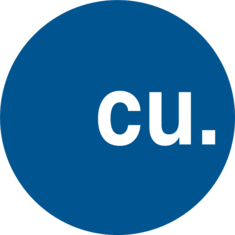Conservative Union
|
Conservative Union | |
| Leader | Daniel Anderson |
|---|---|
| Founded | 8 May 2010 |
| Headquarters | Online |
| Ideology | Conservatism,
Liberal conservatism, Conservative liberalism |
| Official colours | Blue and white |
The Conservative Union (formerly known as the Intermicronational Conservative Alliance until 16 May 2011) is an international organisation established to unite conservative parties. It was founded by Bradley of Dullahan of the Conservative Liberal Party in Wyvern on 9 May 2010, to unite parties following conservative ideals. Its goals are to establish a good conservative front and to bring centre to right-wing politics to every nation. The Union is strongly linked with the Federal Network, and wants to make a status quo with all other ideologies and with what it calls the "Left Community".
History
Bradley of Dullahan founded the Intermicronational Conservative Alliance, often known to the community as the ICA in May 2010. Bradley, an outspoken member of the community and leader of the Conservative Liberal Party of Wyvern, established the organization to counter what was seen as a center left and leftist hegemony over the MicroWiki community. Bradley immediately invited his closest ally, Parker I of the Secundomian Conservative Party to join.[1] Parker accepted and was appointed Vice Secretary.
Great Ideological Conflict
The ICA was a controversial force within the community. Sandus leadership criticized the organization for attacking their country, kicking off the Great Ideological Conflict. ICA leaders denied this claim and strongly criticized Sandus for tarnishing their reputation.[2] Furthermore, the aggressive behavior of members of the ICA was condemned by the St. Charlie government as threatening peace, with the Socialist Party submitting an addendum that called the political ideology of the organization and its leaders "fascist."[3] The Joint Address of the government distressed ICA leadership, especially the comments on fascism.[4] Due to the stress of leadership and internal pressure from Wyvern, Bradley stepped down as Secretary General and was succeeded by Parker I.
Parker I Leadership
After being appointed Secretary General, Parker I was clear to reduce pace and scale of the growing conflict, without abdicating from their commitment to intermicronational conservatism. Bradley remained active, but removed himself from a leadership role. The two collaborated to professionalize the organization, adopting a slate of reforms in August 2010.[5] These reforms would help settle the organization, resulting in a more stable representation of conservative values rather than a militant force.
Evolution into the Conservative Union
The ICA continued along the path of becoming a less aggressive organization when it reorganized into the Conservative Union in 2011. Combining with the more peaceful approach of Parker and Bradley to the community as a whole, the Conservative Union sought for coexistence with the Left Wing. Daniel Anderson of the Siroccan Federal Party became the new Secretary-General of the organisation at this time.
Goal
The goal of the Union is to ensure that the conservative way of thinking and micronations' pride and glory are preserved. The goal is to unite all conservatives and protect their "ancestors' pride".
Administration
The Conservative Union has an Secretary-General who makes policy and speaks in the name of the Union. The current Secretary-General is Daniel Anderson, who was given the leadership on 24 February 2011.
Membership
Every Conservative party is free to join without applying. The following entities may join the Alliance:
- Conservative political parties.
- Non-partisan states which are conservative.
- Independent political members who follow conservative ideals.
Spectrum
The ICA allows the following political streams/views:
- Conservative centrism
- Centre-right
- Right-wing
Members
- Democratic Party (Juclandia)
- New European Nationalist Party (New Europe)
- Secundomian Conservative Party[6] (no longer a member since 2012)
- Siroccan Federal Party (Sirocco)
- Slinky Freedom Party
- People's Party (Wyvern)
- Wyvernian Liberal Party
- Archland Conservative Party
- Coria Democratic Party (Coria)
- Caïd Democratic Union (Caïd)
- Nichiren Democratic Party (Hinata)
- Conservative Party (Plushunia)
- Coalition of National Unity (Pontunia)
Independent political members
These are politicians who are not affiliated with a party and their state isn't conservative; completely or otherwise.
- (none)
Non-partisan states
These are micronations who joined the alliance as they don't have political parties and a majority is conservative or the state is conservative.
References
- ↑ User:Secundomia (Parker I) talk page 9 May 2010
- ↑ User:Secundomia Talk Page - "Sandus" 21 May 2010
- ↑ Joint Address of the St.Charlian Government in response to recent events - May 28, 2010 Microcommons. 28 May 2010
- ↑ User:Secundomia (Parker I) Talk Page - "Fascists" 29 May 2010
- ↑ User Secundomia Talk Page - "ICA reform plan" 26 Aug 2010
- ↑ Secundomian Conservative Party Talk Page, 9 May 2010
